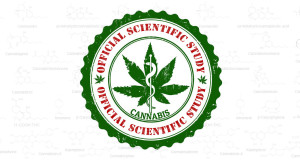ABSTRACT: Selective serotonin reuptake inhibitors, tricyclic antidepressants, various psychoactive drugs, as well as endogenous steroids and cannabinoid-like compounds are metabolized by the polymorphic cytochrome P450 2C19 (CYP2C19). Absence of this enzyme has been recently shown to associate with lower levels of depressive symptoms in human subjects. To investigate ... Continue Reading
hippocampus
STUDY: PTSD – Cannabinoid modulation of prefrontal-limbic activation during fear extinction learning and recall in humans
ABSTRACT: Pre-extinction administration of ∆9-tetrahydrocannibinol (THC) facilitates recall of extinction in healthy humans, and evidence from animal studies suggest that this likely involves via enhancement of the cannabinoid system within the ventromedial prefrontal cortex (vmPFC) and hippocampus (HIPP), brain structures critical to fear extinction. However, the effect of ... Continue Reading
STUDY: Anxiety – The Role of Cannabinoids in Modulating Emotional and Non-Emotional Memory Processes in the Hippocampus
ABSTRACT: Cannabinoid agonists generally have a disruptive effect on memory, learning, and operant behavior that is considered to be hippocampus-dependent. Nevertheless, under certain conditions, cannabinoid receptor activation may facilitate neuronal learning processes. For example, CB1 receptors are essential for the extinction of conditioned fear associations, indicating ... Continue Reading
STUDY: The fatty acid amide hydrolase inhibitor URB597 exerts anti-inflammatory effects in hippocampus of aged rats and restores an age-related deficit in long-term potentiation
ABSTRACT: Background Several factors contribute to the deterioration in synaptic plasticity which accompanies age and one of these is neuroinflammation. This is characterized by increased microglial activation associated with increased production of proinflammatory cytokines like interleukin-1β (IL-1β). In aged rats these neuroinflammatory changes are associated with a ... Continue Reading
STUDY: Increasing Endocannabinoid Levels in the Ventral Pallidum Restores Aberrant Dopamine Neuron Activity in the Subchronic PCP Rodent Model of Schizophrenia
ABSTRACT: Schizophrenia is a debilitating disorder that affects 1% of the US population. While the exogenous administration of cannabinoids such as THC are reported to exacerbate psychosis in schizophrenia patients, augmenting the levels of endogenous cannabinoids has gained attention as a possible alternative therapy to schizophrenia due to clinical and preclinical ... Continue Reading

